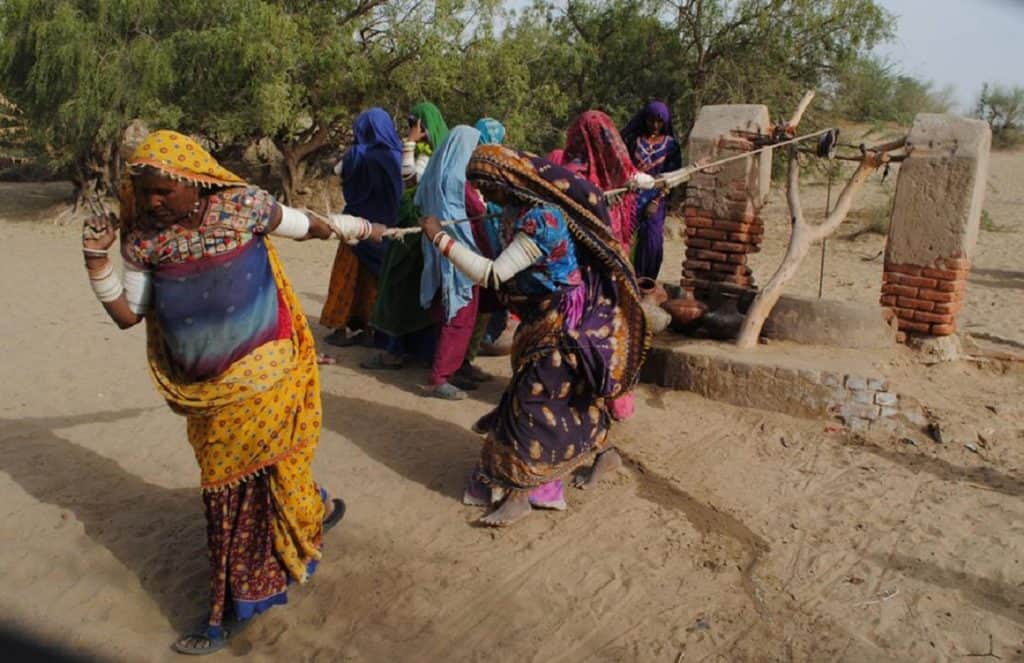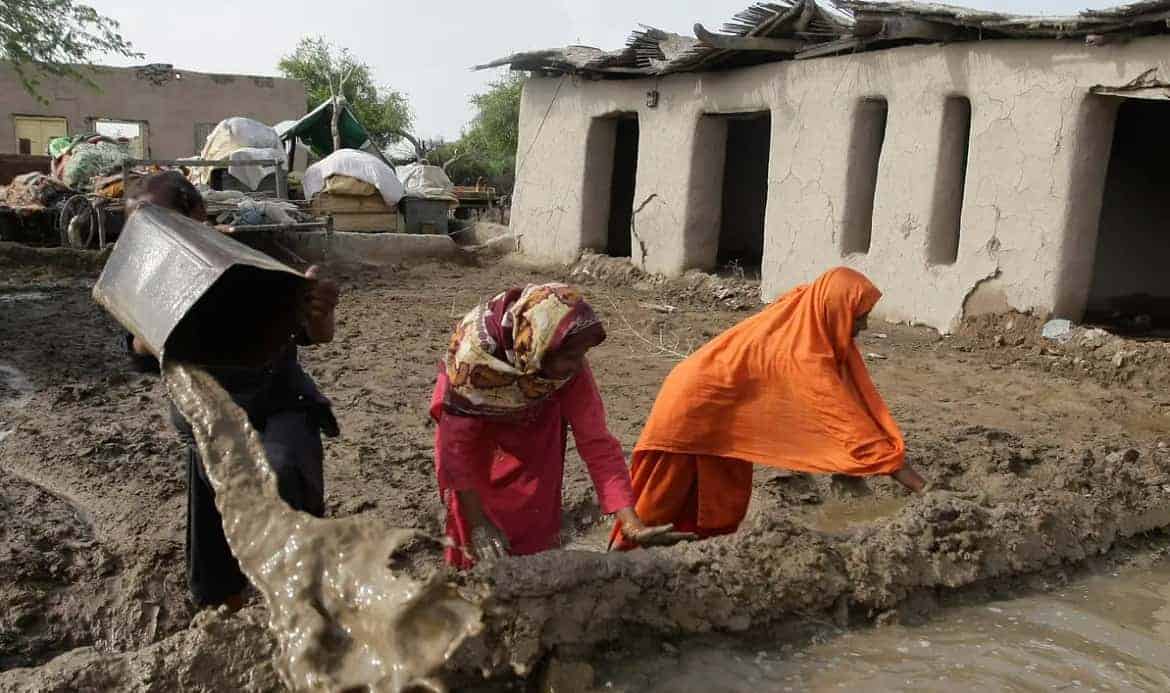By Sumaira Manzoor
Climate change and women’s rights are two interconnected issues in Pakistan. Pakistan is one of the countries most vulnerable to the impacts of climate change, with increasing temperatures, frequent natural disasters, water scarcity, and changing weather patterns posing significant challenges for its people.

These challenges are particularly acute for women, who often face greater risks and vulnerabilities than men. One of the ways in which climate change affects women in Pakistan is through changes in agricultural practices. Women in rural areas often rely on agriculture for their livelihoods, and climate change can lead to reduced yields, increased water scarcity, and decreased food security. This can exacerbate existing gender inequalities, as women may have less access to resources and decision-making power in the face of these challenges.
In addition to these economic impacts, climate change can also have significant social and cultural effects on women in Pakistan. For example, as climate change exacerbates water scarcity, women are often responsible for collecting water for their families. This can be a time-consuming and physically demanding task, and it can also put women at risk of violence and harassment when they travel long distances to collect water.
Furthermore, women in Pakistan are often disproportionately affected by natural disasters such as floods and droughts, which are becoming more frequent and severe due to climate change. These disasters can lead to displacement, loss of livelihoods, and increased risk of gender-based violence and exploitation. Despite these challenges, women in Pakistan are also playing an increasingly important role in addressing climate change. Women’s organizations and activists are working to raise awareness about the impacts of climate change on women and to advocate for policies that prioritize gender equality and women’s empowerment in climate change adaptation and mitigation efforts.
Overall, climate change and women’s rights are deeply intertwined issues in Pakistan. Addressing climate change and promoting gender equality must go hand in hand if we are to build a more just and sustainable future for all. Climate change is affecting countries around the world, including Pakistan. Unfortunately, the impact of climate change is not evenly distributed, and it often affects vulnerable populations such as women, the poor, and those living in rural areas disproportionately. In Pakistan, climate change has significant implications for women’s rights, and these implications are expected to worsen in the coming years if measures are not taken to address the issue. Here are some of the ways climate change is affecting women’s rights in Pakistan:
Water scarcity: Climate change has led to irregular rainfall patterns in Pakistan, resulting in water scarcity, particularly in rural areas. As women are usually responsible for water collection, this has a significant impact on their daily lives, forcing them to walk long distances to fetch water, which can take several hours a day. This leads to less time for women to engage in productive activities or education and negatively impacts their overall wellbeing
Agriculture: Agriculture is a crucial sector of Pakistan’s economy, and climate change is affecting it in various ways. Erratic weather patterns, including floods and droughts, have impacted crop yields and reduced the availability of food. Women are often involved in agriculture-related activities, such as harvesting, processing, and selling produce, and their livelihoods are at risk due to reduced crop yields.
Health: Climate change has also led to increased incidence of diseases and health problems, particularly among women and children. The lack of access to clean water and sanitation, as well as exposure to extreme temperatures and air pollution, has resulted in higher incidences of respiratory illnesses and other health problems
Migration: Climate change has forced many people to migrate from their homes in search of better living conditions. Women and girls are particularly vulnerable during this process, as they are at higher risk of violence and exploitation. Moreover, women who migrate are often forced to leave behind their support networks and are left to navigate the challenges of resettlement alone.
Gender-based violence: Climate change has also been linked to an increase in gender-based violence in Pakistan. Disasters such as floods and droughts can lead to increased tensions within households and communities, resulting in higher rates of domestic violence. Moreover, women who are forced to migrate due to climate change are at higher risk of being trafficked or sexually exploited.
In conclusion, climate change has significant implications for women’s rights in Pakistan. The impact is expected to worsen in the coming years if measures are not taken to address the issue. Therefore, it is crucial to adopt climate-smart strategies that take into account the gendered impacts of climate change and empower women to participate in decision-making processes that affect their lives.
Author: Sumaira Manzoor – Lecturer in Political Science, Govt Graduate College for women Satellite town Bahawalpur, PhD Scholar at IUB.
(The views expressed in this article belong only to the author and do not necessarily reflect the views of World Geostrategic Insights).
READ ALSO
The Politics of Climate Change |








